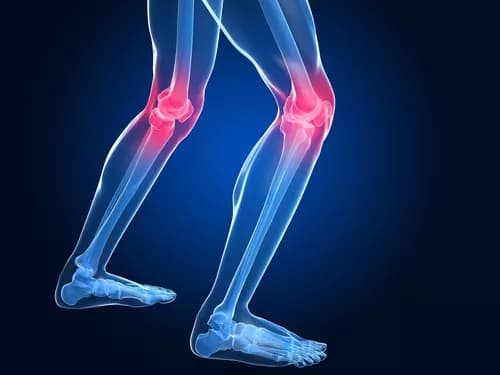
Fiber-Rich Diet Linked To Lowered Risk Of Painful Knee Osteoarthritis
A fibre-rich diet is linked to a lowered risk of painful knee osteoarthritis, finds the first study of its kind, published online in the Annals of the Rheumatic Diseases.
The findings, which draw on two different long term studies, are broadly in line with the other reported health benefits of a fibre-rich diet. These include reductions in blood pressure, weight, and systemic inflammation, and improved blood glucose control.
The researchers mined data from two US studies in a bid to find out if dietary fibre might have any bearing on the risks of x-ray evidence of knee osteoarthritis, symptomatic knee osteoarthritis (x-ray evidence and symptoms, such as pain and stiffness), and worsening knee pain.
The first of these studies was the Osteoarthritis Initiative (OAI). This has been tracking the health of nearly 5000 US men and women with, or at risk of, osteoarthritis since 2004-6 (average age 61), to pinpoint potential risk factors for the condition.
The second was part of the Framingham Offspring cohort study, which has been tracking the health of more than 1200 adult children of the original Framingham Heart Study and their partners since 1971. For the current study, results are based on data first taken between 1993-4, when participants were 54, on average, up to 2002-5.
For both studies, dietary fibre intake was measured using Food Frequency Questionnaire responses. It averaged out at around 15 g daily in the OAI, and 19 g daily in the Framingham Offspring, study.
Information on symptoms and x-ray evidence were collected every year for four years in the OAI and assessed after 9 years in the Framingham Offspring study. Data were also gathered on potentially influential factors, such as knee injury/surgery, medication, and lifestyle, including tobacco and alcohol use and physical exercise.
At the end of 4 years, among the 4051 participants in the OAI with complete data on dietary fibre intake, 869 knees were symptomatic; 152 displayed x-ray evidence of osteoarthritis; and pain had worsened in 1964.
After an average of 9 years, among 971 participants in the Framingham Offspring study with complete dietary fibre data, 143 knees were symptomatic and 175 displayed x-ray evidence of osteoarthritis.
Analysis of the data showed that eating more fibre was associated with a lower risk of painful knee osteoarthritis. Compared with the lowest intake (bottom 25 per cent of participants), the highest intake (top 25 per cent) was associated with a 30 per cent lower risk in the OAI and a 61 per cent lower risk in the Framingham study. But it was not associated with x-ray evidence of knee osteoarthritis.
Additionally, among the OAI participants, eating more fibre in general, and a high cereal fibre intake, were associated with a significantly lower risk of worsening knee pain.
These findings held true, regardless of other potentially influential factors.
This is an observational study, so no firm conclusions can be drawn about cause and effect. Nevertheless, the researchers say: "These data demonstrate a consistent protective association between total fibre intake and symptom-related knee [osteoarthritis] in two study populations with careful adjustment for potential confounders."
And they point to other evidence suggesting that a fibre-rich diet is associated with several health benefits, many of which are relevant to osteoarthritis.
Materials provided by BMJ. Note: Content may be edited for style and length.
Disclaimer: DoveMed is not responsible for the accuracy of the adapted version of news releases posted to DoveMed by contributing universities and institutions.
Primary Resource:
Dai, Z., Niu, J., Zhang, Y., Jacques, P., & Felson, D. T. (2017). Dietary intake of fibre and risk of knee osteoarthritis in two US prospective cohorts. Annals of the Rheumatic Diseases, annrheumdis-2016. DOI: 10.1136/annrheumdis-2016-21810
Related Articles
Test Your Knowledge
Asked by users
Related Centers
Related Specialties
Related Physicians
Related Procedures
Related Resources
Join DoveHubs
and connect with fellow professionals

0 Comments
Please log in to post a comment.